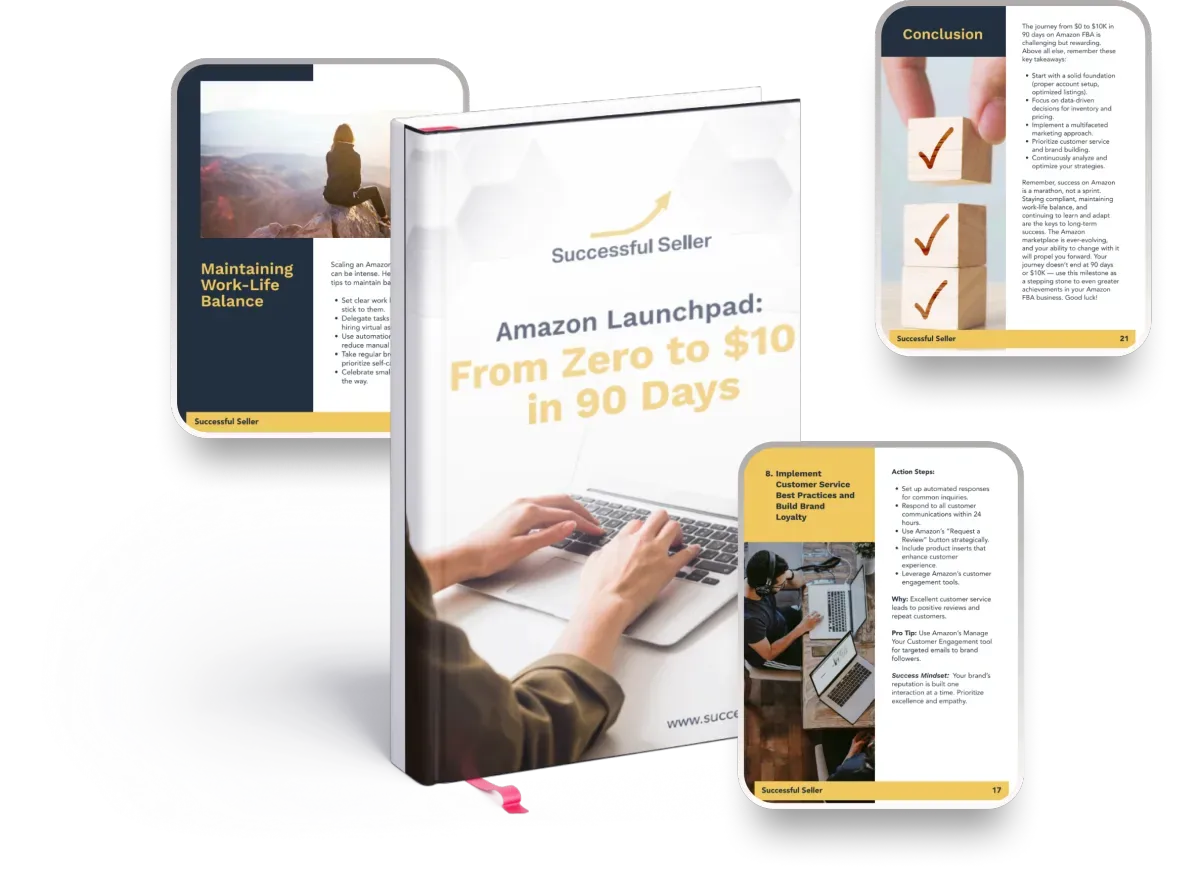
Our Articles
Home • Articles
The Ultimate Guide to Amazon Hero Image Optimization in 2025

In today’s hyper-competitive Amazon marketplace, your main product image (often called the “hero image”) is arguably the most influential element in determining whether a potential customer clicks on your listing or scrolls past. With the latest data showing that first impressions occur in milliseconds, optimizing your main image isn’t just important—it’s essential for survival and growth on Amazon.
Why Your Main Image Is Your Most Valuable Amazon Real Estate
When a customer performs a search on Amazon, they’re presented with dozens of product options in the search results. In this critical moment, your main image serves as the primary visual ambassador for your product. According to recent research, over 70% of Amazon traffic now comes from mobile devices, making your image’s impact in thumbnail size even more crucial.
The search results page displays several elements for each product:
Reviews: While important for conversion, these take time to accumulate
Title: Primarily serves Amazon’s algorithm rather than directly influencing customer clicks
Price: A deciding factor, but options for optimization are limited
Main image: The element with the greatest potential for optimization and CTR improvement
Of these elements, the main image is the only one that can be easily optimized for immediate impact on your click-through rate (CTR). A well-optimized main image can dramatically increase your CTR, which in turn sends positive signals to Amazon’s A10 algorithm, potentially improving your organic ranking as well.
Amazon Image Requirements: The Foundation of Optimization
Before discussing advanced optimization strategies, it’s essential to understand Amazon’s strict image requirements, which serve as the foundation for any successful image:
Format: JPEG or PNG (preferred)
Size: Minimum 1600 × 1600 pixels (to enable zoom functionality)
Color mode: RGB (not CMYK)
Background: Pure white (RGB 255, 255, 255)
Product coverage: 85% or more of the image area
Prohibited elements: No text, graphics, or watermarks allowed
File size: Less than 10MB
These technical requirements ensure your images meet Amazon’s standards, preventing potential suppression of your listings. However, meeting these basic requirements is just the beginning—the difference between an acceptable main image and one that drives exceptional CTR lies in the strategic optimization techniques we’ll explore next.
The Science of Creating High-Converting Main Images
Creating a main image that captivates potential customers requires understanding both the technical aspects of photography and the psychological triggers that influence buying decisions.
Professional Quality: The Non-Negotiable Foundation
No amount of clever techniques can compensate for poor image quality. Before implementing any optimization strategies, ensure your product photography exhibits:
Sharp focus throughout the image
Proper, consistent lighting that accurately represents colors
Careful positioning to showcase key product features
Professional post-processing for color correction and background removal
For products sold as sets, organize items neatly to clearly display everything included. Compare the difference between a disorganized arrangement of bath products versus a neatly arranged presentation—the latter immediately communicates value and professionalism.
Strategic Product Positioning
How you position your product within the frame significantly impacts viewer perception:
Shoot at a slight angle (15-20 degrees): This adds depth and allows customers to see multiple sides, making the image more engaging
Use mannequins for apparel: For clothing and accessories, mannequins often provide the most effective presentation
Choose a three-quarter view for electronics: If your product has key features on multiple sides, this angle showcases these details effectively
Introduce subtle shadows: Soft shadows add depth, making the product appear more three-dimensional and visually appealing
Many successful Amazon sellers are now turning to 3D product rendering rather than traditional photography. This approach creates flawless-looking main images that can be easily modified for different purposes including A+ Content, store design, product inserts, and brochures.
Mobile Optimization: The 70% Rule
With over 70% of Amazon traffic coming from mobile devices, optimizing your main image for mobile viewing is no longer optional. When designing your image, consider:
Thumbnail clarity: Your product should be immediately recognizable even at small sizes
Contrast and color: Strong contrast helps your product stand out in a sea of competing images
Simplicity: Avoid cluttered compositions that lose impact when viewed on smaller screens
Test your images by viewing them at thumbnail size. If your product isn’t immediately identifiable or if key features become unclear, reconsider your approach.
A/B Testing: The Data-Driven Approach to Image Optimization
Instead of relying on intuition, use data to determine which main image performs best. A/B testing involves creating multiple versions of your main image and measuring which generates the highest CTR.
Amazon now offers the “Manage Your Experiments” feature that allows brand-registered sellers to test different main images against each other. For those without brand registry, third-party tools like PickFu offer consumer testing platforms where you can get feedback on different image options before publishing them.
When conducting A/B tests, focus on testing one variable at a time:
Angle of the product
Background shading (while maintaining the white background requirement)
Product arrangement (for multi-item products)
Lighting style
This methodical approach allows you to identify exactly which elements drive improvements in CTR, creating a feedback loop for continuous optimization.
Advanced CTR-Boosting Strategies
Beyond the fundamentals, several advanced strategies can give your main image an edge over competitors:
Leverage Packaging When Beneficial
If your product has distinctive, attractive packaging that adds value or communicates key benefits, consider including it in your main image. However, the product itself should always remain the primary focus.
Show Scale When Relevant
For products where size might not be immediately apparent, subtly indicating scale can prevent customer confusion and returns. This must be done within Amazon’s guidelines, without additional text or graphics.
Highlight Unique Features Through Positioning
Position your product to naturally highlight its unique selling points. For example, if your water bottle has a special leak-proof lid, angle the product to make this feature visible without needing explanatory text.
Use Professional Photo Editing
Professional editing can enhance your image while maintaining compliance with Amazon’s requirements:
Perfect white background (RGB 255, 255, 255)
Natural shadows for dimensionality
Color correction for accurate representation
Dust and imperfection removal
Remember that while editing should make your product look its best, it must still accurately represent what customers will receive. Misleading images lead to returns and negative reviews.
Measuring Success: Beyond CTR
While improving CTR is the primary goal of main image optimization, track these additional metrics to gauge overall impact:
Conversion rate: Are more clicks translating to more sales?
Return rate: Has optimizing your image reduced returns by setting accurate expectations?
Session duration: Are visitors spending more time on your listing after clicking?
Overall sales velocity: The ultimate measure of success
An optimized main image should improve all these metrics by attracting qualified potential buyers and setting accurate expectations about your product.
Implementation Timeline and Process
To implement an effective main image optimization strategy:
Evaluate your current main images against the criteria in this guide
Prioritize products with high traffic but low CTR—these represent the greatest opportunity
Create multiple improved versions of your main image
Use A/B testing to determine the most effective option
Implement the winning image and monitor performance
Continuously test and refine based on results
Remember that image optimization is not a one-time task but an ongoing process of refinement as you gather more data and as market trends evolve.
By implementing these advanced strategies, you’ll create main images that not only comply with Amazon’s requirements but also capture attention, communicate value, and drive clicks in an increasingly competitive marketplace.

Free Amazon Road Map: Your Path to $10K in Monthly Sales in 90 Days
Discover the proven, step-by-step system that’s helped hundreds of sellers achieve $10K+ months on Amazon — even if you’re starting from scratch or struggling to scale your existing store.

About Us
Successful Seller exists to help you scale your Amazon Business. Founded in 2017 in the UK and Canada, we've helped dozens of companies, big and small, to grow their brands to six, seven and eight figures.
Know Our ProductsStay in the Loop!
Get Personalized Tips on How To Grow Your FBA BusinessJoin thousands of FBA Brands who are receiving the cutting-edge tips, tricks, and examples that show you how to grow your FBA Store.
